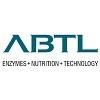Explore all the information on
Poultry gut health
The efficient conversion of feed into its basic components for optimal nutrient absorption is vital for both broiler and broiler breeder production and welfare. Gut health, an intricate and complex area combining nutrition, microbiology, immunology and physiology, has a key role to play. When gut health is compromised, digestion and nutrient absorption are affected which, in turn, can have a detrimental effect on feed conversion leading to economic loss and a greater susceptibility to disease. In addition, recent changes in legislation on the use of antimicrobials, differing feed requirements and more efficient birds highlight the need for a better understanding of gut function and gut health.
At Poultry India 2025, Lukas Bauer (Evonik Animal Nutrition) explains how a solution enhances gut health for optimal poultry performance. The solution supports producers facing modern production challenges with consistent and reliable results. ...
Comments : 0
Recommendations: 1
Introduction Current poultry production targets at reducing productions costs and nitrogen excretion into the environment while maintaining an effective animal performance. The key to limit nitrogen excretion is a reduction of the protein content of the diet with concurrent supplementation of deficient and (performance-)limiting amino acids (AA). The aim is to provide balanced quantities of individual AA at the sites of protein synthesis, which have to be further balanced with...
Comments : 0
Recommendations: 0
1. Introduction The gastrointestinal tract is a dynamic and complex environment that requires a correlation between the gut microbiota and the host for good functionality [1–3]. The composition of the gut microbiota changes throughout the life of the animal or due to various factors like the environment, behavior, and diets [4]. Studies indicate a strong correlation between intestinal diseases and the constitution of the microbiota [1,2]. A healthy gut is an essential...
Comments : 0
Recommendations: 0
INTRODUCTION Antibiotics as growth promoters have brought about important achievements in poultry production output worldwide (Mehdi et al., 2018). Antibiotic usage in animal feeds has brought about a change in intestinal flora of chickens, and influenced their immunity with an increased capacity to control diseases (Lee et al., 2012). However, the uncontrolled and indiscriminate usage of antibiotics has resulted in antibiotic-resistant bacteria and an increased incidence of...
Comments : 0
Recommendations: 0
In this Engormix interview, Michael Joseph, Assistant Professor & Extension Specialist at NC State University, discusses the use of various combinations of feed additives to maintain gut health and how technology and precision nutrition can contribute. ...
Comments : 0
Recommendations: 0
Introduction Protein besides biologically active compound in the body exists as enzymes & hormones, also plays important role in physiology of living organisms. Soybean meal (SBM) is complete conventional protein source with well-balanced amino acids profile. On the other hand due to increase in prices of SBM, alternative sources like groundnut cake, sunflower meal, guar meal, rapeseed cake, cotton seed cake, copra meal, maize gluten, DDGS etc. are used, but they have...
Comments : 4
Recommendations: 0
The highly anticipated 2026 Latin American Poultry Summit is set to bring together leading voices from across the Americas to explore the future of poultry production, innovation and sustainability. With a full day of expert sessions, global perspectives and networking opportunities, attendees can expect a dynamic program focused on driving progress and strengthening collaboration within the industry.
The event will take place on Monday, Jan. 26, and will open with a presentation of...
Comments : 0
Recommendations: 0
Necrotic Enteritis in the Post-AGP Era: A Complex Multifactorial Challenge
The restriction on antibiotic growth promoters (AGPs) in the broiler industry has led to a significant resurgence of enteric diseases, particularly necrotic enteritis (NE). This complex disease, estimated to cost the global industry USD 6 billion annually, requires a deeper understanding to develop effective control strategies. A recent review by Shahna Fathima, Walid Ghazi Al Hakeem, Revathi...
Comments : 1
Recommendations: 1
José Henrique Stringhini (Federal University of Goiás) comments on the advantages of butyric acid compared to other additives and offers practical recommendations for its use in water or feed, during this Engormix interview....
Comments : 2
Recommendations: 3
Mike Persia (Virginia Tech) talks about the benefits of Direct-Fed Microbials (also Sulfur Amino Acid supplementation) to help manage the adverse effects of heat stress, in this interview during IPPE 2023 in Atlanta, USA....
Comments : 69
Recommendations: 10


New Generation of Water-Soluble Probiotics to Alleviate Gut Health Challenge During Feed Transition Period in Broiler Production
Suggested link
Introduction Within livestock production, feed accounts for 65 to 70 % of the total cost of production; however, despite constant efforts to achieve the safety of food intended for animal production, there are still factors that diminish its quality, such as biological pathogens (such as Salmonella spp., E. coli, Listeria spp., Campylobacter spp.), chemical substances (fungicides, herbicides, and insecticides), and presence of fungi (Fusarium, Penicillium, Mucor etc.)(1). Fungal...
Comments : 0
Recommendations: 1
The use of barley in broiler diets is limited because of the presence of β-glucans, which negatively influence nutrient utilisation and bird performance. These negative effects may be partly overcome by exogenous carbohydrases containing β-glucanases. In the current study, the influence of a multi-component carbohydrase (Ronozyme multigrain, DSM Nutritional Products, Singapore) on nitrogen-corrected apparent metabolisable energy (AMEn; assay 1), and, apparent ileal digestibility...
Comments : 0
Recommendations: 0
The composition of gastrointestinal microbiota has been demonstrated to affect behaviour and vice versa (Neufeld et al., 2011; Berthoud, 2008). In free-range laying hens, the individual preference to range can lead to characteristic sub-populations of the flock (Hinch & Lee, 2011). The purpose of this study was to investigate the impact of ranging behaviour on caecal microbiota in laying hens. A flock of sixty ISA Brown laying hens was housed in the UNE research facilities with...
Comments : 0
Recommendations: 0
Gastrointestinal (GI) passage rate of feed influences nutrient digestibility and absorption, as it dictates the amount of time the digesta are exposed to digestive enzymes, the intestinal villi and microbial fermentation (Vergara et al. 1989; Svihus 2010). The titanium dioxide (TO 2 ) marker technique is currently widely practiced for evaluation of GI passage rate. However, this method requires euthanising the bird to obtain digesta samples, which has negative implications from an...
Comments : 0
Recommendations: 0
The UGA International Poultry Short Course provides a comprehensive overview of modern poultry production.
It is intended for those individuals with limited knowledge of poultry, as well as those who might have considerable experience in one area of poultry production but would like to have a better...
Comments : 0
Recommendations: 0
by Benjamin Geist
With just over 120 days until APSS 2026, planning for the 37th annual Australian Poultry Science Symposium is progressing smoothly. Next year’s event will return to the University of Sydney Business School – Belinda Hutchinson Building (H70) on the Camperdown Campus, and we’re excited to once again welcome delegates for 2.5 days of presentations, posters, networking, and industry engagement.
The theme for APSS 2026...
Comments : 0
Recommendations: 0
I. INTRODUCTION Necrotic enteritis (NE) is of great concern to the poultry industry due to its deteriorating impact on production and increasing mortality, resulting in a US$6 billion global economic loss (Wade and Keyburn, 2015). The causative agent of NE is Clostridium perfringens, a gram-positive spore-forming anaerobic bacterium. The subclinical form of NE is financially more devastating than the clinical form. This is due to a lack of obvious symptoms resulting in a delayed...
Comments : 0
Recommendations: 0
I. INTRODUCTION Protease enzymes can improve the dietary protein utilization. Therefore, it is possible to decrease the level of dietary protein to save on feed cost while maintaining performance, reduce nitrogen excretion in the environment, and minimize the risk of enteric infections. The objective of this study was to evaluate the effect of a protease on performance and intestinal health of broiler chickens fed a standard diet or a low-density diet. II. MATERIALS AND...
Comments : 0
Recommendations: 0
Footpad dermatitis (FPD) is considered an animal welfare issue. Wet and sticky litter are major causes of FPD (Taira et al., 2014). Our previous study showed that a well selected probiotic strain Bacillus subtilis 29784 can improve broiler performance by modulating intestinal microbiota and intestinal inflammatory status (Ghane et al., 2017; Jacquier et al., 2016). We hypothesize that the previous demonstrated benefits of B. subtilis 29784 on gut health will improve litter quality and may...
Comments : 0
Recommendations: 0
I. INTRODUCTION Clay minerals and yeast fractions are regarded as effective tools for the prevention of the negative effects of toxic compounds in animal feed and production (Kubena et al., 1990; Lillehoj et al., 2016; M’Sadeq et al., 2015; Phillips et al., 1988). Clays and yeast fractions, when added to animal feeds, can adsorb certain toxic materials in the gastrointestinal tract of the animals, reducing their bioavailability. Dietary supplementation with clays has been shown...
Comments : 0
Recommendations: 1










.jpg&w=3840&q=75)









.jpg&w=3840&q=75)











